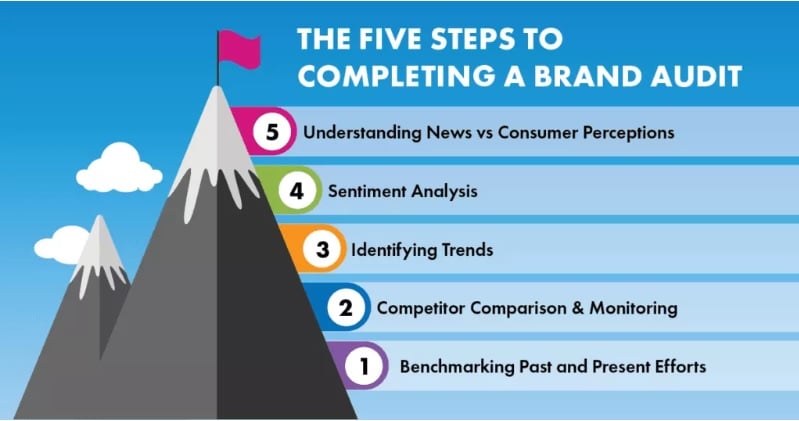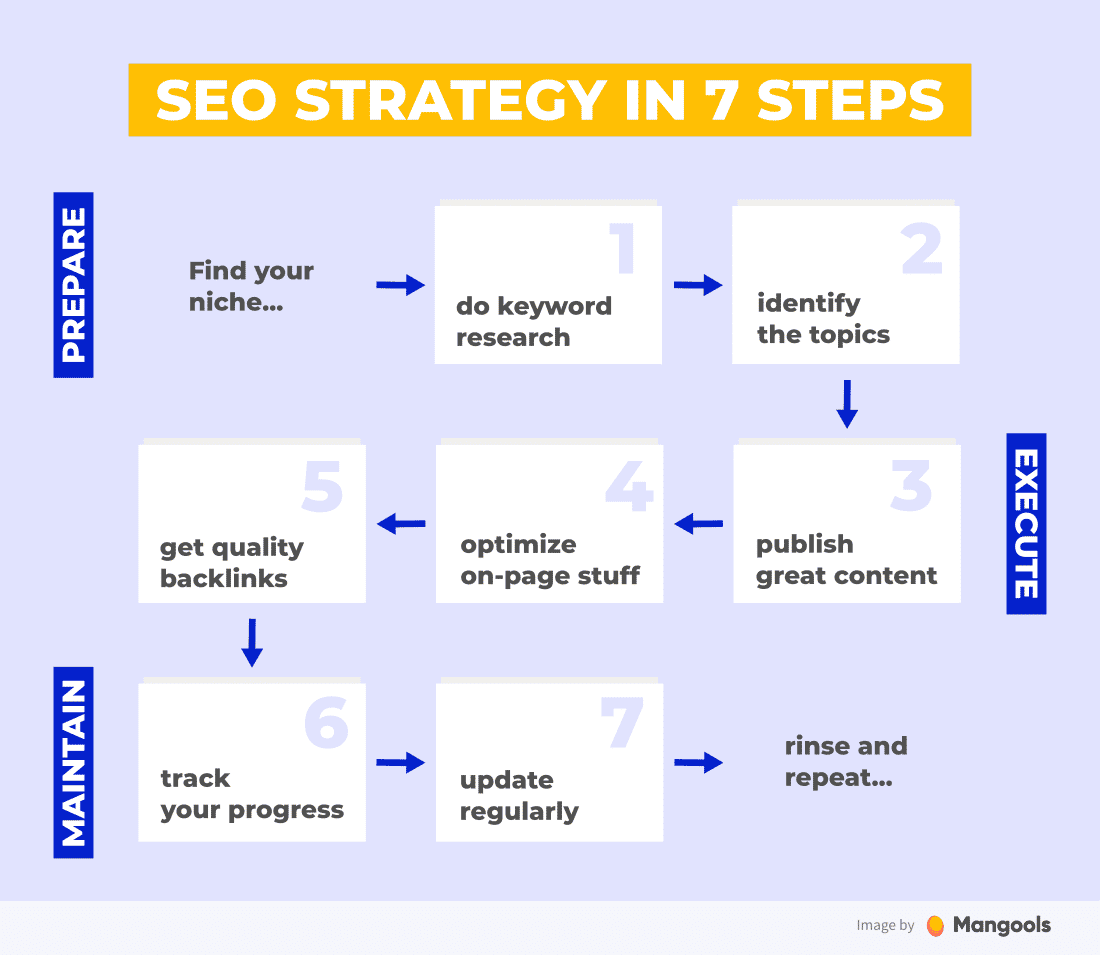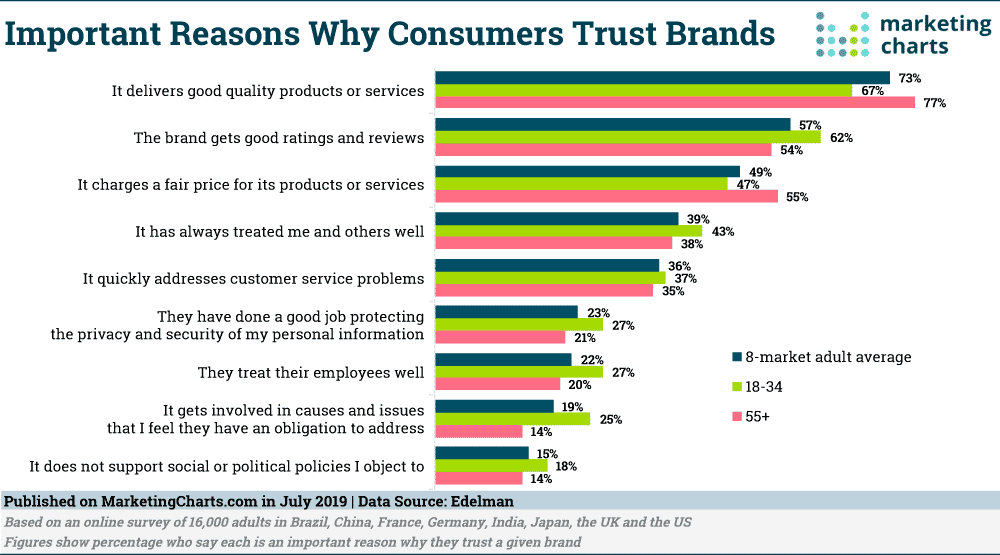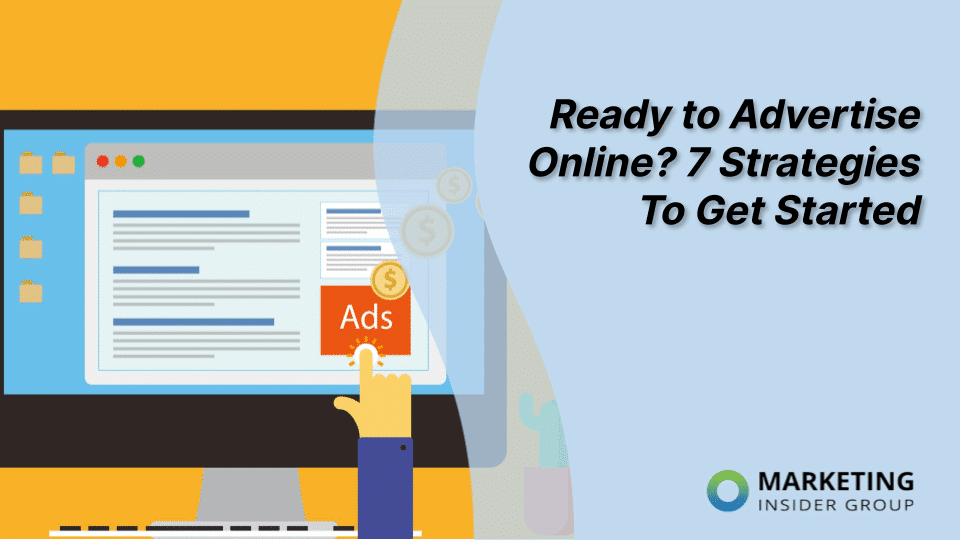
How to Take Control of Your Business’s Online Reputation
Where do you go to discover new brands?
If you answered “the internet,” you’re in the majority. Search engines are the most popular method of brand discovery among consumers ages 16-64. More than a quarter of consumers also use brand websites, social media, and digital ads to find brands.
This means the online reputation of a business is critical to its ability to attract and retain customers.
But brands are not alone in building said reputation. The internet has created active audiences. Consumers contribute to the way a brand is perceived online through reviews, social media, and more. A brand’s press coverage is shared faster and more widely than ever before. Industry “best-of” lists and expert reviews are available in a single click.
Brands simply cannot control every single thing that’s published about their brand online. But they can implement strategies to control the larger narrative, and that’s what we’re going to cover in this article. In the following sections, you’ll learn more about why the online reputation of a business is so important, plus 9 actionable strategies you can use to control yours.
Quick Takeaways
- More than 90% of consumers say they are more likely to choose a company with positive reviews and that just one bad review can change their mind about a business.
- Conducting a brand audit is the best way to get a grasp on your company’s current online reputation.
- It’s critical to control the first page of Google results for your branded search terms — 98% of users never go past page one.
- Consumers trust online reviews just as much as word-of-mouth recommendations.
- Responding well to bad reviews can actually build trust and improve the online reputation of your business.
Why is the online reputation of a business so important?
The online reputation of a business is the new storefront. It’s what people see first, and it’s what makes them decide if they want to know more.
It only takes a few minutes for consumers to get a sense of your current online reputation. A quick Google search or scroll through product reviews are enough for them to make a decision about whether they want to go further.
The clearest way to understand why a brand’s online reputation is so important, however, is by the numbers. Consider the following:
- 91% of customers are more likely to choose a brand with many positive reviews
- 84% of customers trust online reviews as much as word-of-mouth recommendations
- 94% of customer said just one bad review convinced them not to use a business
- 71% of U.S. workers said they would not apply to a company experiencing negative press
To boot, research has found that it takes the average online user 50 milliseconds to form an opinion about a brand. Your first impression seriously matters. If you don’t control what people see first when they encounter your brand online, you risk losing business.
How to take control of your business’s online reputation
Perform a brand audit
The first step to taking control of the online reputation of your business is to know where it stands. You can do this by conducting a brand audit. A brand audit is the process of evaluating how your brand is currently positioned on the market and perceived by the public. It’s a good idea to do them often — many brands make it a part of their quarterly review process.
This five step framework can help you get started on conducting yours:

Image Source: NetBaseQuid
Here’s a quick summary of the 5 steps:
- Benchmarking past and present efforts – Assessing whether or not your past and present marketing efforts met their goals.
- Competitor comparison and monitoring – Measuring your efforts against those of your competitors.
- Identifying trends – Looking for what’s trending with your target audience and considering how your marketing efforts align.
- Sentiment analysis – Looking at reviews and other user content to determine how consumers feel about your brand.
- Understanding news vs. consumer perceptions – Looking to see if what the press says about your brands and what consumers are saying lines up.
Create a reputation management strategy
Once you’ve completed your brand audit, you have the information you need to create an online reputation management strategy. Your reputation management strategy will contain two main components:
- Addressing issues that exist with your current online reputation
- Creating a plan for monitoring your online reputation going forward
While the idea of creating this strategy may seem daunting, you can start with some simple steps that make a big impact:
Set goals
What are the most important things you want to achieve through online reputation management? Are there specific issues you need to address right away? Are there gaps (ex: no online reviews) that you want to fill? What new tactics do you want to implement? Be sure to take time to set clear goals that set your strategy in the right direction.
Know your resources
What human resources do you have internally to dedicate to online reputation management? How much time can your team spend on it? Do you have technology tools that can help? What other resources exist for you to leverage?
Make a priority list
What are the most important things to address first? Make a list of priorities for your strategy and address them by order of urgency and potential impact.
Create an execution plan
A well-defined plan keeps your strategy focused and your team accountable for follow-through. Set deadlines for tasks where it makes sense, identify who is responsible for each initiative, and identify how you’ll keep track of progress (example: a shared work plan in Google Sheets).
Control your first page of Google results
One initiative that should be at the top of your priority list is taking control of the first page of Google results for your company’s branded search terms. Remember that search engines are the number one method people use for brand discovery. Now consider this: a whopping 98% of people will never scroll past the first page of Google results.
You need to control what users find on that first page. But how do you do it? The answer is with a strong SEO marketing strategy — a comprehensive approach to improving search rankings and controlling which content ranks highest.
As it relates to managing your online reputation, your SEO marketing strategy should focus on ranking controllable web pages (like those from your own website and blog) for brand-related queries. When you do, you push negative content down in the rankings (where barely anyone sees it) and move positive content to the first page.
There are many moving parts involved. The graphic below sums them up well:

Image Source: Mangools.com
Let’s quickly consider each in further detail:
Keyword research
Find the queries your customers are performing related to your brand. You can do this using Google autocomplete (type in your brand name and see what shows up after it) or Google Analytics Queries report. You can also enter your brand name into SEMRush’s easy-to-use Keyword Magic Tool to get a list of top queries related to your brand.
Identify topics
Choose topic clusters that determine which high-level topics you’ll cover in your SEO strategy and the keywords you’ll target to rank on page one of your Google results pages.
Publish great content
This one’s the key. Create thought leadership content and publish it consistently to increase your brand authority in important areas. Also create valuable content around customer reviews (highlight them on your website, create a dedicated testimonials page, etc.). Finally, claim and optimize third-party sites that typically rank on Google’s first page (like Yelp and Google My Business).
Optimize on-page SEO
Execute proven on-page SEO tactics like keyword usage, metadata, images, and other technical SEO components to optimize rankings for each individual web page on your site.
Get quality backlinks
Backlinks from highly reputable websites increase your brand authority and make you appear trustworthy to online audiences. Link building is a bit of a long game — you have to create high value content over time in order to earn backlinks. Once you start, however, your link building strategy will build momentum and your backlinks will make a clear impact.
Track your progress
How will you measure your success? Two of the most important metrics to use for your SEO strategy are rankings and organic traffic. Both are clear indicators of whether your content efforts are successful. Managing the online reputation of your business requires you to go a bit beyond those numbers, too, and pay attention to the story being told about your brand.
It’s a good idea to set aside regular, dedicated time to assess the progress of your SEO strategy and make adjustments as needed.
Update regularly
Your SEO strategy is a continual effort. Don’t let your content get outdated. Doing so can cause your online reputation to suffer. Update your content regularly to be sure that brand and product information is accurate. Align your efforts with current trends in your industry and in the marketing world. Know how Google’s ranking factors change (they often do) and adjust accordingly. Refresh your best content to keep it relevant and high-performing.
Updating your strategy and your content is one of the simplest parts of your SEO strategy and makes a huge impact on its success.
Market like a PR firm
Thinking with a public relations mindset can help you control your online reputation beyond the content you create yourself. Marketing like a PR firm mainly means generating positive press and user-created content that contributes to your reputation. It also means responding to poor reviews to minimize their impact.
Generate positive press
Some ways to build positive press for your brand include:
- Guest posting on quality websites
- Publishing press releases about important events and announcements
- Co-marketing with reputable brands
- Making company leaders visible through interviews, event appearances, podcast appearances and the like
- Making a positive social impact through charitable partnerships
- Quickly and genuinely addressing mistakes
Optimize user-created content
There are two main ways to encourage user-generated content that contributes to the online reputation of your business:
- Customer reviews and testimonials
- Creating shareable content
Reviews are second only to actual product quality when it comes to reasons consumers trust your brand.

Image Source: MartketingCharts.com
If you’re not already encouraging your customers to review your brand, it’s time to start. You can offer incentives to motivate them (like a discount or free giveaway). Make positive reviews visible by linking them on your website or putting them directly on product pages.
Second, make the content you create highly shareable to build brand advocacy. People love to share content online. When you get your engaged audience to share yours, you’re not only impacting your online reputation but boosting your brand visibility. Make your content more shareable with easy steps like including social media buttons on your blog and sharing blog posts on your social media pages.
Respond to bad reviews
It’s easy to see a bad review or negative press and want to ignore it, hoping it will lose its impact as time passes. But it’s also a bad idea. The thing is, every business experiences at least the occasional bad review. Potential customers actually look for your worst reviews to decide if they warrant a change of direction or if they’re forgivable mishaps.
Always respond to bad reviews as quickly as possible, and do it in a genuine, solution-oriented way. What I mean is: don’t just say I’m sorry and call it good enough. Listen to the feedback, thank your reviewer (when it makes sense), and offer a solution that can actually rectify their issue and turn their negative customer experience into a positive one.
When customers see that you do, it builds their trust and boosts the online reputation of your business.
Over to You
Taking charge of your brand’s online reputation requires publishing frequent, consistent, high-value content. The team of writers and SEO experts can deliver you optimized, ready-to-publish content every week so that you can focus on controlling the larger story.
Check out our SEO Blog Writing Service or schedule a quick consultation with me to learn more.






